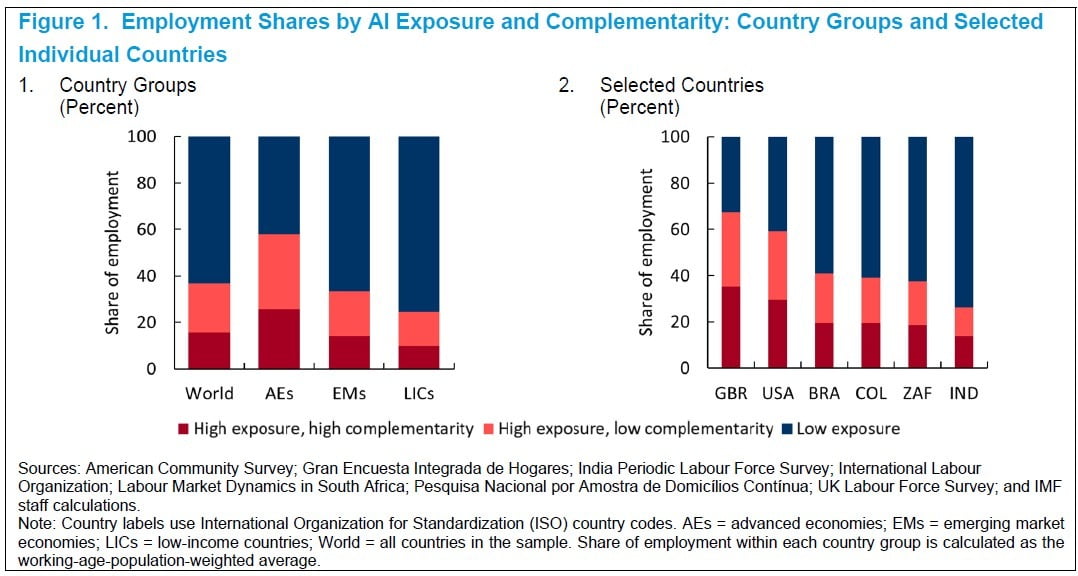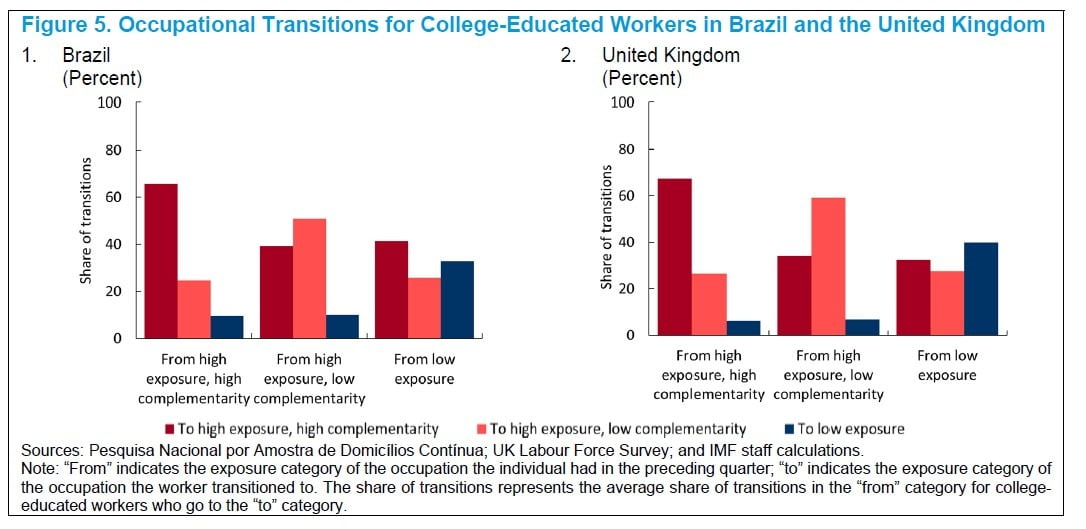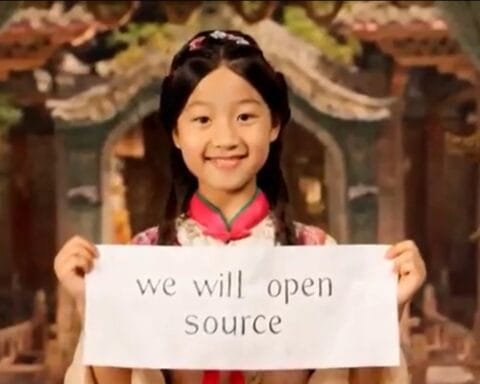Last Updated on January 15, 2024 2:51 pm by Laszlo Szabo / NowadAIs | Published on January 15, 2024 by Laszlo Szabo / NowadAIs
IMF AI Notes: About 60% of Jobs Are Exposed to AI – Key Notes
- Global Job Exposure to AI: 40% of global jobs are at risk, with a higher impact in advanced economies due to cognitive-task-oriented jobs.
- Income Inequality Concerns: AI poses risks of exacerbating income and wealth inequality, affecting higher-wage earners and benefiting high-income workers.
- Diverse Economic Impact: Advanced economies face job displacement risks, while emerging markets confront a widening digital divide.
- Policy Recommendations: The IMF emphasizes the need for tailored policy responses based on a country’s development level, focusing on AI integration, regulatory updates, and labor market adaptability.
- Importance of Social Safety Nets: Strengthening social safety nets and providing retraining opportunities are crucial for mitigating AI-induced job displacement risks.
- Inclusive Growth Strategy: The IMF urges a balanced approach to AI adoption, aiming for growth that is inclusive and equitable across different segments of society.
AI’s Impending Impact on Global Employment
The International Monetary Fund (IMF) has released a revealing note, “Gen-AI: Artificial Intelligence and the Future of Work“, highlighting the profound impact AI is poised to have on global labor markets.
This document, prepared by a team of experts like Mauro Cazzaniga, Florence Jaumotte, Longji Li, Giovanni Melina, Augustus J Panton, Carlo Pizzinelli , Emma J Rockall or Marina Mendes Tavares, underscores that nearly 40% of global employment is exposed to AI, with significant disparities between advanced and emerging economies.
Advanced Economies at the Forefront of AI Integration

In advanced economies, a striking 60% of jobs are exposed to AI, mainly due to a higher prevalence of cognitive-task-oriented jobs.

Stay on Top with AI News!
Follow our Google News page!
The IMF Note suggests a unique measure of potential AI complementarity, revealing that around half of these jobs may be adversely affected by AI, while the rest could see productivity enhancements.
Contrastingly, the exposure is less in emerging markets and low-income countries, which could lead to an increased digital divide and income disparity.
AI and the Future of Income Inequality
One of the most significant revelations from the IMF AI Notes is the expected impact of AI on income and wealth inequality. Unlike previous automation waves, AI’s displacement risks extend to higher-wage earners.
However, its potential complementarity is positively correlated with income, indicating that higher-wage earners could see a proportional increase in their labor income. This could exacerbate income and wealth inequality due to enhanced capital returns favoring high earners.
According to the note,
“Labor income inequality may increase if the complementarity between AI and high-income workers is strong…”
Preparing for AI-Induced Transformations

The IMF Note emphasizes that countries need to prepare differently based on their development levels.
Advanced and more developed emerging market economies should focus on AI innovation and integration, upgrading regulatory frameworks, and supporting labor reallocation.
For less prepared economies, foundational infrastructure development and building a digitally skilled labor force are crucial.
The note asserts,
“For all economies, social safety nets and retraining for AI-susceptible workers are crucial to ensure inclusivity.”
Conclusion: A Call for Adaptability and Policy Evolution
“AI will affect income and wealth inequality.”
– the note stated. As Artificial Intelligence continues to redefine the labor landscape, it becomes imperative for countries to adapt their policies and strategies.
This IMF AI Note is not just about the technological evolution but also calling about adapting our workforce and policies to harness AI’s potential benefits while mitigating its risks.
FAQ Section:
- What are IMF AI Notes?
IMF AI Notes refer to a detailed report by the International Monetary Fund, focusing on the implications of artificial intelligence on global employment and income disparity. - How does AI affect employment according to the IMF?
The report highlights that nearly 40% of global jobs are exposed to AI, with advanced economies facing higher risks of job displacement but also opportunities for productivity enhancements. - What does the IMF suggest for countries facing AI integration?
For advanced economies, the focus should be on AI innovation, regulatory upgrades, and labor reallocation support. Emerging economies should develop digital infrastructure and workforce skills. - Will AI increase income inequality?
The IMF notes suggest that AI could exacerbate income inequality, as it potentially displaces higher-wage jobs and disproportionately benefits high-income workers. - Are there specific recommendations for policy makers in the IMF AI Notes?
Yes, the IMF recommends enhancing social safety nets, providing retraining for AI-susceptible workers, and evolving policies to ensure balanced and inclusive growth in the AI era.
Table of Contents
Toggle







